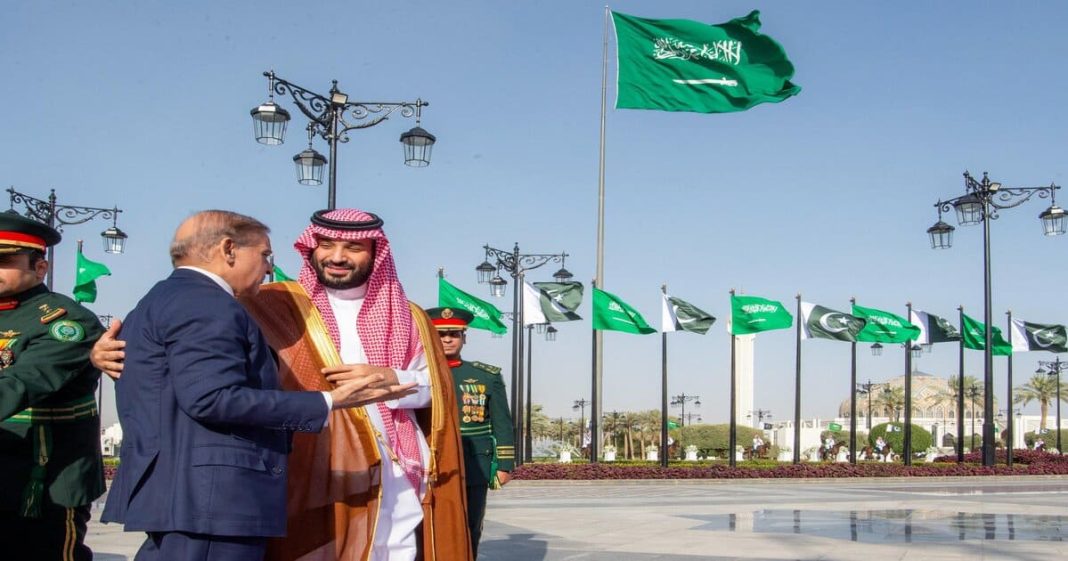When a missile ripped through a residential compound in Doha on Sept. 9, it did more than shatter windows. It detonated a geopolitical fuse whose blast radius runs from the Persian Gulf’s LNG terminals to the balance sheets of Wall Street. The strike on Qatari soil — which killed Qatari personnel and members of a negotiating delegation — propelled the Gulf from the periphery of the Gaza war into its active center and forced an uncomfortable reckoning about the regional architecture that has undergirded global capitalism for four decades.
For the past 40 years the liberalized global economy has quietly relied on an uneasy division of labor in the Middle East: Gulf petrodollars and sovereign wealth to stabilize global finance, and Israeli innovation to power Western military and high-technology ecosystems. That tacit bargain has been a hidden pillar of globalization — until now.
Doha’s emergency summit and the Gulf’s subsequent statements made one thing painfully clear: Gulf leaders perceive an attack on Qatar as an attack on the Gulf. The GCC’s formal communiqués condemned the aggression, affirmed that the security of member states is indivisible, and directed joint defence mechanisms to be readied — language calculated to signal collective deterrence without immediately naming the perpetrator in blunt terms. Qatar, having paused its mediation role in the Gaza talks and demanding an official apology, warned that its patience and its role as a broker were being mortally endangered.
That restraint in diplomatic drafting — the choice to condemn and mobilize without explicitly naming Israel in every line — is tactical. It is intended to preserve options: to mobilize collective Gulf pressure while keeping room for mediation, compensation, and back-channel settlement. But the very absence of an explicit naming also reflects fear: Gulf capitals know that once naming becomes unambiguous, the only next steps are escalation or capitulation. And escalation now has new friends.
Read More: Islamic Bomb for Petrodollars: The Ummah’s Coalition, Barter, or Mirage?
Within days of the Doha strike, Riyadh and Islamabad moved from strategic proximity to an explicit mutual defence arrangement. The Saudi-Pakistan “Strategic Mutual Defense Agreement” — which binds the two countries to treat an attack on one as an attack on both — dramatically ups the stakes. Pakistani officials have publicly suggested, in the wake of the pact, that aspects of Pakistan’s nuclear deterrent could be made available under a Saudi umbrella, raising the specter of nuclear hedging in a region previously dominated by a single declared nuclear power.
Two immediate lessons follow. First, the Gulf is mobilizing collective defence not as a rhetorical posture but as a tangible policy choice. Second, partnerships and reassurances are shifting outward from the dollar-denominated architecture that once bound Gulf capital to Washington. That shift is not yet a fait accompli; it is a risk vector.
Why does this matter to an American investor or a European importer? Because the modern capitalist system — built atop the petrodollar compact and reinforced by flows of Gulf capital into Western bonds, equities and technology — depends on predictable, low-risk access to both energy and financial liquidity. If the Gulf concludes that Washington’s security guarantees are insufficient, or that the diplomatic status quo tolerates violations of Gulf sovereignty, then Riyadh and its partners will have incentive to hedge by deepening financial ties with Beijing, accelerating de-dollarization, or rerouting investments into rival institutions. The Saudi-Pakistan pact is a ballistic signal in that direction: a hardening of security relationships that reduces the Gulf’s political need to anchor itself exclusively to U.S. systems.
Meanwhile Israel remains the indispensable technological partner of the U.S. defense-industrial ecosystem. If the Gulf and its partners pivot economically toward China and politically toward a more independent security posture, the result would not be a simple diversion of cash. It would be a structural bifurcation: an energy-capital pole oriented toward Beijing and a tech-security pole aligned with Washington and Tel Aviv. Global supply chains for semiconductors, encryption, and defense systems would face political friction at every turn; capital flows that lubricate markets could be rerouted to new clearinghouses; and the dollar’s privilege — the oil-backed recycling that helped stabilize post-Cold War globalization — could be weakened.
That outcome is neither immediate nor inevitable. Much will depend on the diplomatic choreography of the next 30–60 days: whether Israel offers meaningful redress that preserves Qatari mediation, whether Gulf leaders convert unified rhetoric into binding action, and whether the U.S. reasserts both deterrence and credible political leadership in ways that reassure Gulf capitals without surrendering principles. But these are high-stakes choices. The economic shock of a bifurcated order would not be limited to the oil markets; it would touch sovereign wealth funds that own stakes in major Western banks, it would complicate financing for critical infrastructure, and it would fragment the technology ecosystems that underpin modern commerce.
Read More: Trees Are Rarer Than Diamonds: How We Can Still Reverse Climate Collapse
History offers a blunt warning: Middle Eastern conflicts have previously convulsed global markets — from the 1973 oil embargo to the 1990 Gulf War. What is different now is that the Gulf is not merely a supplier of raw energy; it is a structural financier of the global system. The Saudi-Pakistan pact and the Doha crisis together make a rupture more plausible and more dangerous.
Diplomacy — not bravado — must be the immediate priority. Quiet apologies, compensation, and guarantees of sovereignty are not merely matters of etiquette; they are instruments of economic security for the world. If the United States, Europe and regional actors fail to translate solidarity into concrete guarantees, the ugly arithmetic is simple: the scaffolding of globalization will be tested, and the global capitalist order may be forced to choose between two competing poles — with unpredictable consequences for growth, prices, and peace.
Under the pen name Patience Quill, the author explores the intersection of global politics and economics, where national ambitions collide with financial realities.














